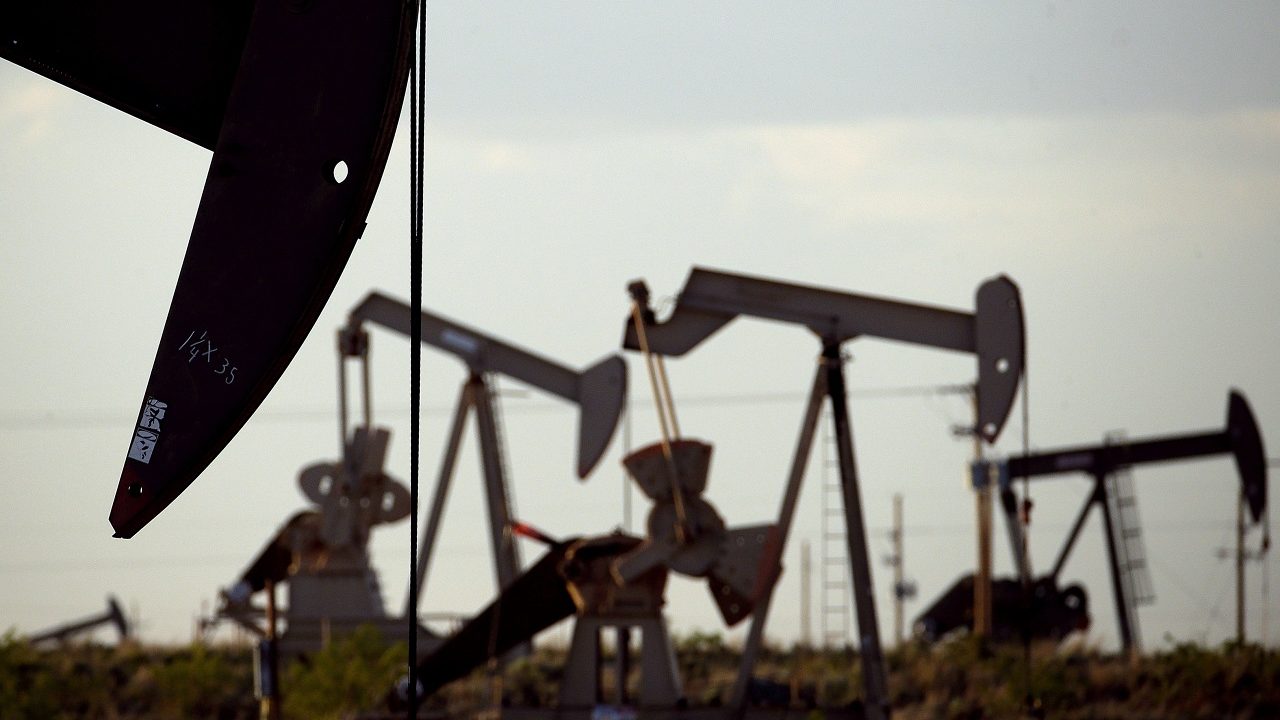Fox Business Flash grabs headlines here. Check out what is being clicked on FoxBusiness.com.
OPEC and its allies‘ decision to cut Rough production Until March, they gave a late Christmas gift to US shale oil companies that have slashed costs, but any price hike spurred by an unexpected move may just be a modest storage factor.
US crude oil production fell by 2 million barrels per day in the past year due to lower prices and demand Shale oil producers To cut back their losses. Investors were already pressuring the industry to curb spending and boost returns before the pandemic spreads. Shale production has been quickly cut off, but it may return quickly if prices continue to rise.
Get your FOX business on the go by clicking here
Saudi Arabia, the world’s largest oil exporter, said on Tuesday it would voluntarily cut its output by 1 million barrels per day in February and March, after Russia pressed to increase production, fearing that US shale oil would be used for group cuts.
Russia and Kazakhstan will increase their production, and will be reluctant to cede market share to the United States. In general, OPEC was to return + 500,000 bpd in each of the two months. Saudi officials were concerned that the new increases would outpace demand during new lockdowns due to the coronavirus.
West Texas Intermediate prices surpassed $ 52 a barrel on Friday, and the price of the 12-month futures contracts, which producers use to plan spending on new wells, were $ 51.37 a barrel, up from $ 44.63 at the start of December.
Bottom lines of interest
Higher crude oil prices will drop directly to the net profits of US producers in light of recent cost cuts and commitments to keep production steady. The companies pledged to keep production steady and use any price increases to increase investor returns or pay off debt.
Thomas Jordan, CEO of Cimarex Energy, said the price spikes in recent years “tend to be kind of a mirage”. „We will be very disciplined in setting the budget,“ he told the Goldman Sachs conference on Thursday.
Oil demand will reach ‚pre-coverage levels‘: Ex-Shell Oil chief
In the two largest shale oil fields in the United States, oil and gas companies are making profits ranging from $ 30 a barrel to $ 40 a barrel, according to data company Rystad Energy. Rystad said higher prices this year could push the shale group’s cash flow from operations by 32%.
Another factor that will benefit producers is the lower costs of oilfield services. The excess production capacity of the companies providing sand crushing services reduced the fees and could not raise them.
„The margins are terrible,“ said Chris Wright, chief executive of Liberty Oilfield Services, North America’s second largest cracker. „They are a little better now than they were six months ago, but they’re still horrible.“
Activity remains depressed
Liberty has successfully held down existing customers during the pandemic, but the prices were still so low, and it made no sense to pursue new customers. He said that the demand for hydraulic fracturing services is improving but falling short of levels that would boost US shale oil production.
Linda Hattin, senior research director at consultancy Wood Mackenzie, said that shale producers have historically raised production budgets as oil prices have risen. But, she said, „this time may be a little different“ because global demand remains uncertain.
The United States keeps selling the first oil rent for Alaska refugees in the Arctic
Raoul Lublin, Vice President of IHS Markit, said oil will have to reach $ 60 to $ 65 per barrel to restore US production by 1 million barrels per day while improving investor returns.
Energy executives in Colorado, Oklahoma, Wyoming and northern New Mexico said in a Kansas City Fed survey Friday that oil prices should average $ 56 a barrel to substantially increase drilling.
Click here to read more about FOX BUSINESS
Sarp Ozkan, chief manager at the analytics firm Infirus, said the industry was down so much last year that working in the oil fields this year would mean „easing downturn rather than growth.“
(Prepared by Jennifer Heller in Houston; edited by David Gregorio)

„Organizátor. Spisovateľ. Zlý kávičkár. Evanjelista všeobecného jedla. Celoživotný fanúšik piva. Podnikateľ.“





